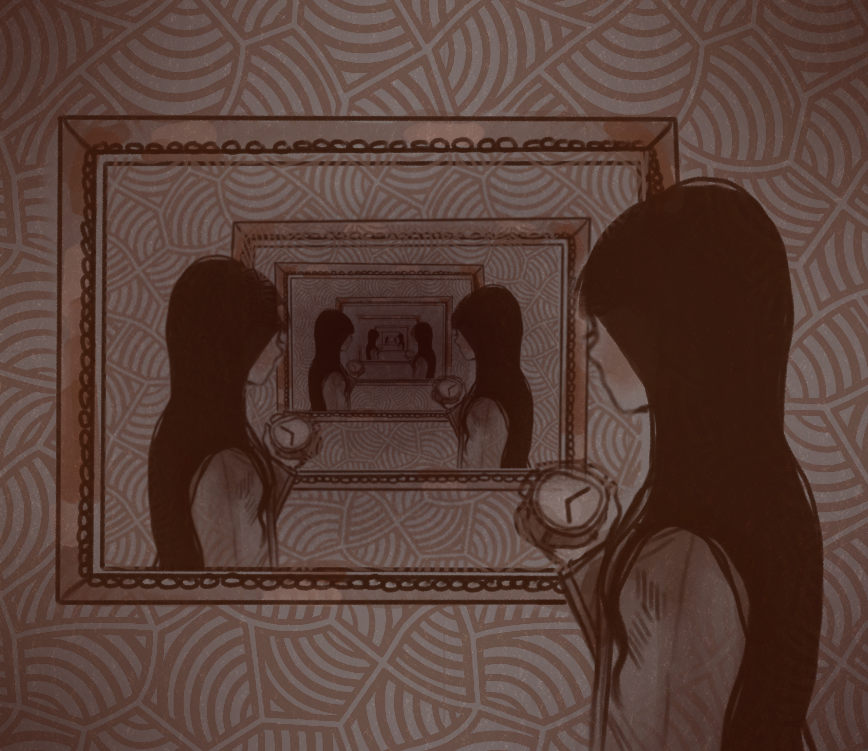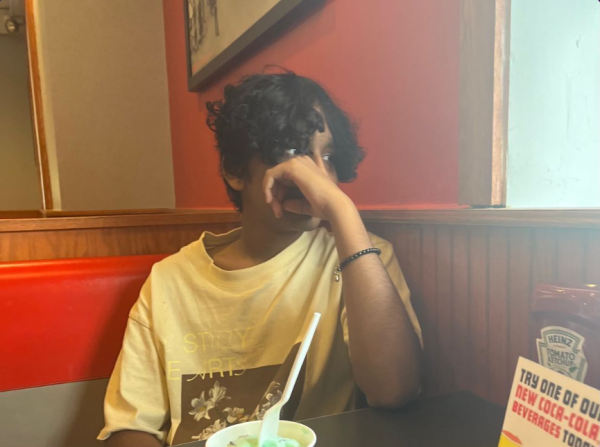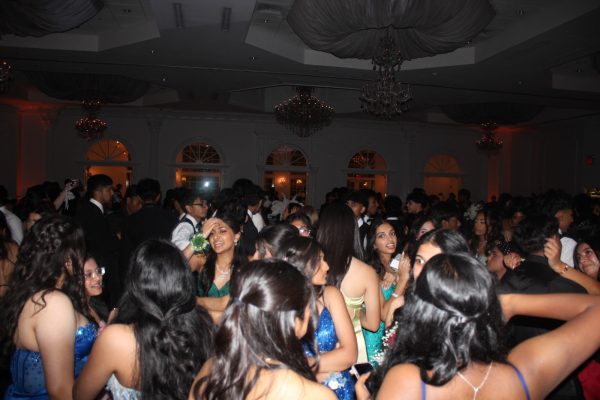Ever Get That Feeling of Deja Vu?
I feel like I did this before…
April 17, 2023
The sun intensely shines down through the single thick window in your attic, refracting into a blanket of rays that pinpoint all the dust particles swimming in the stale air. The stagnant boxes directly under the window stare blankly into the abyss of dim space, since they are trapped within the shade despite standing directly below the light; the ventilation system wraps around the entire room, covering most of the floor. Seeing this, you feel an odd sense of reminiscing. This was definitely your first time in your attic, but for some reason, you just can’t shake the feeling that the boxes, the dust, or even the vents have been in that exact position with you facing them in this exact way in the past. That feeling is deja vu.
Deja vu is when you experience something for the first time yet you feel like you have already experienced it before. Its name comes from French origins meaning “already seen.” The actual cause, unlike the name, is a heavily disputed topic comprising many different theories. Some of them have scientific basis, while others are purely belief. Most of these theories suffer from confirmation bias: humans believing in what’s most convenient for them.
The first theory is the “cyclic universe” theory. Supposedly, the universe constantly repeats itself, experiencing a Big Bang and then a Big Crunch (or contraction) in cycles for all eternity. When the universe is finally reconstructed, it would be an exact copy of how it was before. Each particle appears in the same location as its predecessor. As such, unavoidably, the first cell will be made. Then, soon after, the very first multicellular organism will appear. Eventually, humans will emerge the exact same way they did in the past universe. So, you feel deja vu because another “you” has literally done the exact same thing, possibly thousands of times, some bizarre number of years ago.
Another theory behind deja vu relates to parallel universes which cannot see or interact with one other. Imagine all the universes as a radio; the radio can only play one frequency at a time, never two or more. So, there are many different universes, but we can only exist in or notice one. However, there are specific times when our actions intercept with our counterpart in another parallel universe. Think back to the purple and white analogy; if, while reaching to grab the clothes, you performed the exact same action as your double in the exact same way at the exact same time, you would “resonate” with their frequency, causing you to feel deja vu.
A third theory is that deja vu is a “precognitive dream.” In short, deja vu is really just the universe’s way of signaling future events to you. This relies on a belief in some higher entity gifting humans the power of foresight, making it the most outlandish of the three theories. The other two—cyclic and parallel universes—have some scientific contexts even if their explanations of deja vu are tenuous.
Even though the many theories behind deja vu are fun to read and think about, the most plausible one is a biological explanation. This theory argues that the actual feeling of deja vu arrives from a simple error in the brain. When your brain puts a short term memory in the place of a long term memory, you feel as if you’ve seen it before, even if that “before” was just two seconds ago. That’s why you would feel oddly nostalgic for something that you’re seeing for the first time.
The biological explanation is the most likely to correctly explain deja vu. It is the one most people believe, and is the most sensical. There is still something strange about the wilder theories that urge people to want to believe them. The other reasonings behind deja vu all seem absurd, showing how humans tend to jump to extremes to explain any phenomenon. We must instead keep Occam’s infamous Razor at the forefront of our problem-solving endeavors. Occam’s Razor tells us that the explanation that requires the fewest assumptions is most likely to be true. Instead of deja vu being a product of cosmological oddities, it seems most likely that it is a biochemical phenomenon. That is the simplest explanation after all.
Deja vu is just another example of how amazing the human brain can be. Contrary to popular belief, it is probably not going to indicate a foreign doomsday event. The next time you feel that odd sensation, remember to consider the complexities of the human brain that allow you to experience deja vu.









































